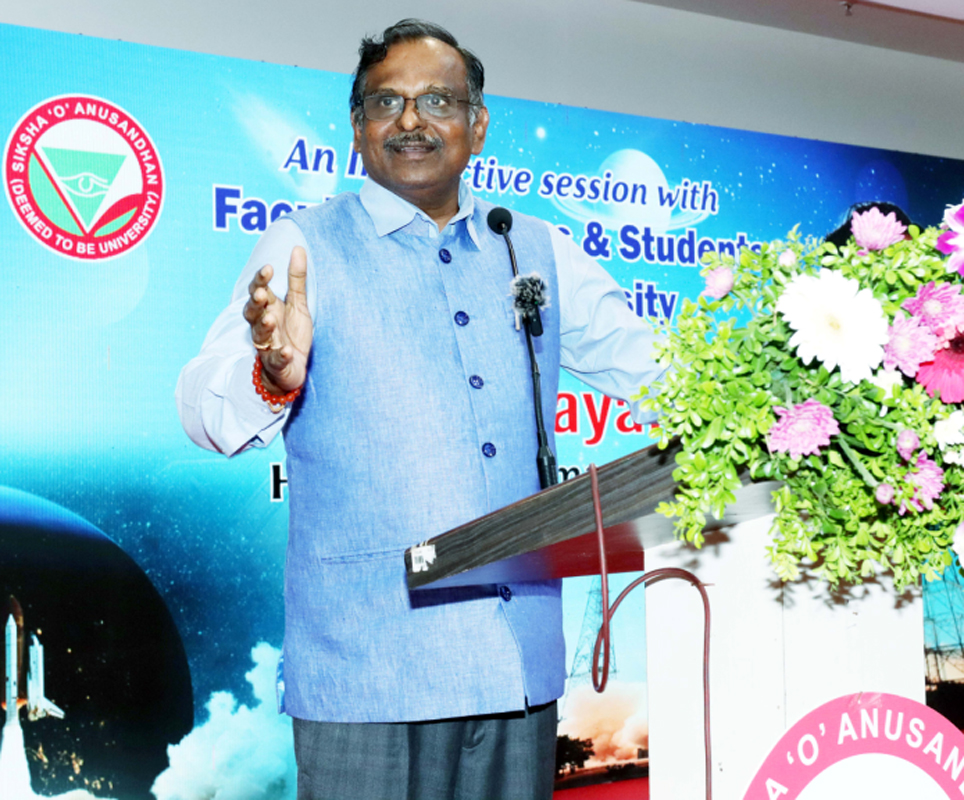Bhubaneswar: The Indian Space Research Organisation (ISRO) aims to establish the Bharatiya Antariksh Station (BAS), a modular space station, by 2035, ISRO Chairman and Department of Space Secretary Dr. V. Narayanan announced Wednesday. This ambitious project will significantly boost India’s presence in space research and advance its technological capabilities.
Speaking at Siksha ‘O’ Anusandhan Deemed to be University (SOA), Dr. Narayanan also confirmed that India’s first human space flight mission, ‘Gaganyaan’, is slated for March 2027. Four test pilots are currently undergoing astronaut training for this landmark mission, which will be preceded by uncrewed test flights. India’s goal is to become a global space power by 2047, a feat only achieved independently by Russia, the United States, and China so far.
Dr. Narayanan, a renowned rocket propulsion expert, highlighted ISRO’s remarkable journey since its 1962 inception. Despite starting later than many global players (ISRO was established in 1969, after the US landed Neil Armstrong on the Moon), India has made phenomenal progress. This includes launching its first 35 kg satellite in 1980, developing six generations of launch vehicles, and famously conceptualizing a 40-storey high rocket in just 27 days.
He recalled a time when India faced skepticism and was denied access to cryogenic engine technology. Undeterred, India successfully developed three such engines, two of them indigenously. Dr. Narayanan proudly noted India’s unique achievements: the only country to soft-land Chandrayaan-3 on the Moon’s south pole and the first to discover water molecules on the lunar surface. India also holds the world record for placing over 100 satellites in space in a single mission and was the only nation to reach Mars’ orbit on its first attempt.
Looking ahead, Chandrayaan-4 will be a complex mission aimed at bringing back lunar samples, while Chandrayaan-5 is planned in collaboration with Japan. Dr. Narayanan also lauded ISRO’s precise docking experiment involving two satellites on January 16, 2025, executed at a speed of 28,400 km per hour, followed by a successful undocking experiment.
The event at SOA was attended by Prof. Damodar Acharya, Chairman of SOA’s International Advisory Board, and featured a welcome address by SOA Vice-Chancellor Prof. Pradipta Kumar Nanda, and a vote of thanks by Prof. Renu Sharma.


